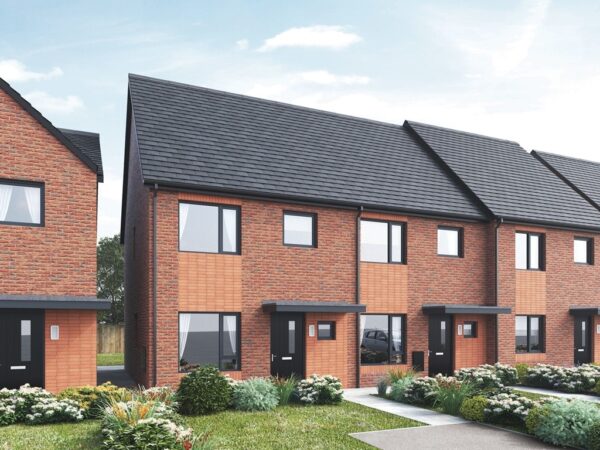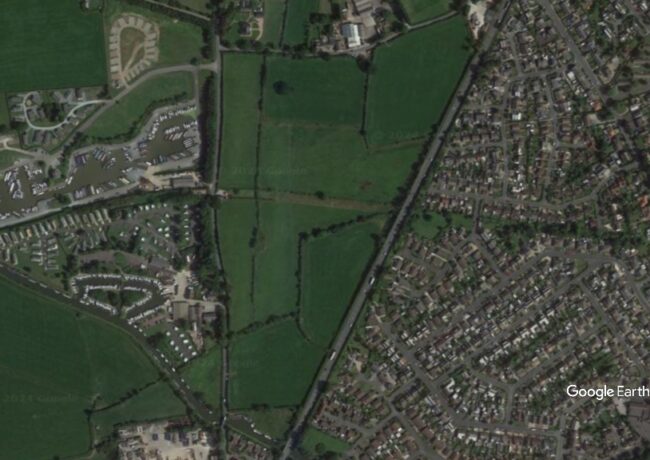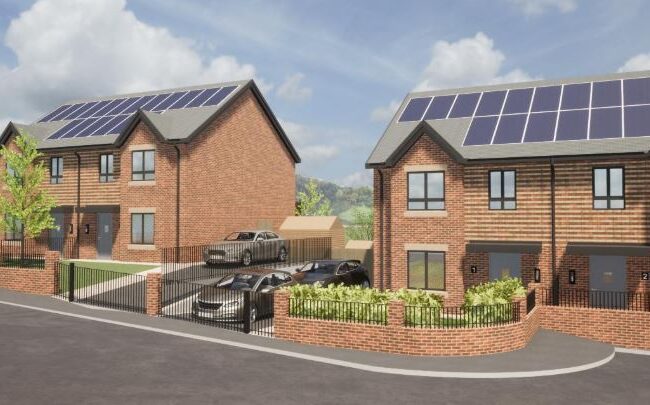Lovell targets public partnerships as housing completions grow
The Altrincham-based housebuilder is eyeing up the “massive opportunity” presented by underused Government land, according to managing director Jonathan Goring, as it aims for 600 home completions across the North West this year.
Goring joined Lovell last year from Laing O’Rourke, and is taking a considered but ambitious approach at the helm of one of the largest regional housebuilders. Working alongside North West managing director Nigel Yates, Lovell’s current business plan centres around developing its public sector partnerships, particularly local authorities, the NHS and Ministry of Defence.

Nigel Yates, North West managing director, is based out of Lovell’s Altrincham office
“We’re removing the blockers to the sensible use of land, and not just expecting stuff to happen,” explains Goring to Place North West.
Lovell is part of the Morgan Sindall group of companies, alongside developer Muse, fit-out contractor Overbury, and the eponymous construction arm. In July’s six-month trading update, the group showed a 45% increase in pre-tax profits to £23.5m.
Part of this growth is attributed to the group’s proactive approach. Rather than waiting for Government to dictate policy, Goring said Lovell is working to research the best ways to make use of public land for housebuilding, with research which has identified 1.1m acres of underused Government land near to areas of high housing demand, across 90,000 sites. MoD ownership makes up 30% of these plots.
Due to the complicated nature of Government offices, there is currently no central resource which easily shows this information. In response, Lovell is developing a heatmap to show the adjacencies of these plots, with a view to approaching local authorities with a clear strategy on how to develop homes.
There are “deep, dense pockets of land” in Government ownership, according to Goring, but as he concedes, there are “conflicting incentives” when it comes to releasing it for development. As Yates put it: “The Government is looking for housing solutions, when it doesn’t even know what it’s got under its nose.” Particularly, utilising the vast amount of public land not in the Green Belt could solve the problems faced by the Greater Manchester Spatial Framework, which argues Green Belt release is needed to deliver developable land.
Going further, last week, Lovell launched a report with think tank Localis, ‘Disrupting the Housing Market’, which called on the Government to give local authorities discretion to re-designate Green Belt where required. ‘Yellowfield’ registers could be created to list land which does not meet criteria for Green Belt status, Lovell has suggested.

Example of Lovell homes proposed at Rock Ferry
The housebuilder is also looking at increasing its use of digital platforms to improve the customer’s experience when looking for a house, and grow its appeal to the all-important Millennials. Lovell is researching improving the use of technology in construction, namely offsite manufacturing. According to Goring, this could impact how homes are designed as well as produced, moving them out of the “box zone” and into more innovative, and faster, ways of construction.
Although Lovell is active in London, it sees the North West market as less volatile than the South, according to Goring, and as such the region is a key growth area for the housebuilder. Last year, the company developed 500 homes in the region, 300 for sale and 200 for registered providers. In 2017, it is set to complete 600.
Lovell is implementing a growth strategy in Lancashire, is on site with 500 homes in Wirral, is acquiring land in Crewe, and has agreed contracts for a site in Blackpool. In Manchester, even in difficult economic times homes have sold well, said Yates. The developer is currently building out four large regeneration sites across the city region, including in Beswick, Miles Platting and Openshaw, which will deliver 2,000 homes.
Despite the consistent success in Manchester, Lovell isn’t tempted to move into the city centre high-rise market unlike other housebuilders. “Towers are more high risk than the multi-phase developments that we deliver,” points out Yates.
“We already go where others wouldn’t go, so already have that strength in the market. We work longer term, and build value, in places such as Carlisle, which in 2004 was an area people didn’t want to go, and we’ve stuck with it and built a community.”




